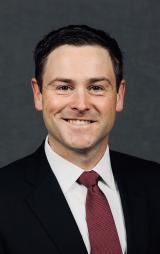Live Grand Rounds: Cognitive Behavioral Therapy for Psychosis: An Underutilized and Effective Treatment

Cognitive behavioral therapy was first applied to psychotic disorders by Aaron Beck in 1952, however the first clinical trial of cognitive behavioral therapy for psychosis (CBT-P) was not completed until 1992. CBT-P has been shown to reduce distress related to psychotic symptoms by up to 40% and improve overall functioning. The evidence supporting its use is so robust that it is recommended in the American Psychiatric Association (APA) guidelines as well as the National Institutes of Health and Clinical Excellence (NICE) guidelines for treatment of schizophrenia. However, this treatment remains underutilized and often unavailable for people in the United States experiencing psychosis due to lack of experienced practitioners and lack of understanding regarding the benefit of CBT-P in the treatment of psychotic disorders. This presentation aims to improve understanding of the evidence base surrounding CBT-P in the treatment of people experiencing psychosis and to describe the process of CBT-P.
Category
- Grand Rounds
- Mood Disorders
- Psychotherapy
Format
- Live Webinar
Credits
- 1.00 ACEP NBCC clock hours
- 1.00 AMA PRA Category 1 Credit™
- 1.00 Category I credits for Social Workers
- 1.00 Psychologists
- 1.00 MNA Contact Hours for Nurses
- 1.00 Participation
Event date December 18, 2024
Cost $0.00
Live Grand Rounds: Dietary Modulation of Glutamate as a Novel Treatment for Mental Illness

There is excellent emerging data on the contribution of ultra-processed foods to mental health outcomes (and other medical conditions). Ultra-processed food tends to contain a high number of food additives. One class of food additives in particular, flavor enhancing food additives, tend to create an unnatural attraction to these processed foods, while also having the ability to affect nervous system functioning in certain individuals. The main component of these additives is glutamate, an amino acid which has the ability to stimulate neurons in the tongue (making food taste better) while also having the ability to affect nervous system function elsewhere. This presentation will teach clinicians about this dietary exposure and how it has been tied to mental health disorders. Currently, clinicians do not receive training in nutrition, and thus, are unable to offer advice in this area. This talk will educate attendees about the role of glutamatergic neurotransmission in mental health and will also provide easy-to-use tools for helping people change their eating behaviors.
Category
- Basic Science
- Grand Rounds
Format
- Live Webinar
Credits
- 1.00 ACEP NBCC clock hours
- 1.00 AMA PRA Category 1 Credit™
- 1.00 Category I credits for Social Workers
- 1.00 Psychologists
- 1.00 MNA Contact Hours for Nurses
- 1.00 Participation
Event date January 15, 2025
Cost $0.00
Live Grand Rounds: Military Cultural Competence

This lecture is for mental health providers who want to develop a better understanding about how military culture can impact patients’ experience of their symptoms and of mental health treatment. It provides an overview of military culture and cultural competence, with a focus on the short comings of a sociologic approach to cultural competence. The benefits of a patient centered approach utilizing the cultural formation interview (CFI) from the DSM-5-TR is then introduced, along with an overview of efforts to develop a military version of the CFI, to include it’s recent inclusion in the DSM-5-TR. Participants are then challenged with clinical cases involving military patients that benefit from utilization of the military version of the CFI.
Category
- Community Mental Health
- Grand Rounds
Format
- Live Webinar
Credits
- 1.00 ACEP NBCC clock hours
- 1.00 AMA PRA Category 1 Credit™
- 1.00 Category I credits for Social Workers
- 1.00 Psychologists
- 1.00 MNA Contact Hours for Nurses
- 1.00 Participation
Event date January 29, 2025
Cost $0.00
Live Grand Rounds: Visual Thinking Strategies for Health Professionals

The arts and humanities play a fundamental role in health professions education. Integrating A&H pedagogical methods into health professions education supports clinical skill mastery, perspective taking, personal insight, and social advocacy. This highly interactive talk will focus on Visual Thinking Strategies, an evidence-based arts and humanities method that enhances individual attributes crucial to clinical care, including implicit bias awareness and critical thinking, while contributing to inclusive learning spaces by minimizing pre-existing hierarchies and fostering team cohesion. Attendees will have the opportunity to participate in a Visual Thinking Strategies discussion and reflect together on how Visual Thinking Strategies supports the development of clinically relevant attributes, as well as facilitative teaching and leadership skills, informed by an understanding of the method’s key elements.
Category
- Basic Science
- Conceptual Psych
- Grand Rounds
Format
- Live Webinar
Credits
- 1.00 ACEP NBCC clock hours
- 1.00 AMA PRA Category 1 Credit™
- 1.00 Category I credits for Social Workers
- 1.00 Psychologists
- 1.00 MNA Contact Hours for Nurses
- 1.00 Participation
Event date March 18, 2025
Cost $0.00

 Facebook
Facebook Twitter
Twitter LinkedIn
LinkedIn Forward
Forward